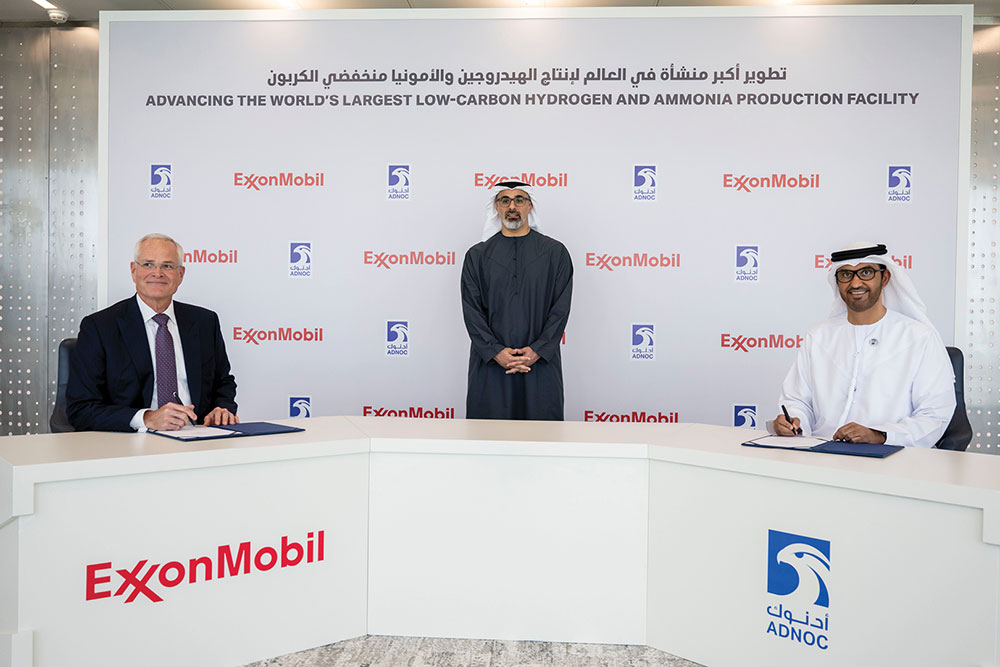ADNOC and ExxonMobil's Low-Carbon Hydrogen Project in Baytown, Texas
Key Ideas
- ADNOC and ExxonMobil have agreed to develop a low-carbon hydrogen and ammonia production facility in Baytown, Texas, making a significant investment in the US energy sector.
- The facility aims to reduce greenhouse gas emissions in hard-to-decarbonize sectors and produce up to 1 billion cubic feet daily of low-carbon hydrogen, with a startup expected in 2029.
- The project plans to leverage advanced carbon capture and storage technologies to minimize emissions and is supported by key officials including Crown Prince of Abu Dhabi and ExxonMobil Chairman and CEO.
- Post FID, ADNOC intends to engage in community initiatives in Baytown, aligning with their sustainability commitments and focus on education in operating locations.
ADNOC has partnered with ExxonMobil to develop a pioneering low-carbon hydrogen and ammonia production facility in Baytown, Texas. The agreement includes ADNOC acquiring a 35% equity stake in ExxonMobil’s project, marking a substantial investment in the US energy sector and the global energy transition. This initiative aims to address greenhouse gas emissions across challenging sectors like industry, energy, and transportation, meeting the increasing demand for lower-carbon fuels and driving towards a net-zero future. The facility, set to be the world’s largest upon startup, plans to deliver 1 billion cubic feet daily of low-carbon hydrogen and over 1 million tons of low-carbon ammonia annually. Anticipated to reach a final investment decision in 2025, with operations starting in 2029, the project will utilize advanced carbon capture and storage technologies to reduce emissions from hydrogen production. Officials including Sheikh Khaled bin Mohamed bin Zayed Al Nahyan and ExxonMobil’s Darren Woods have expressed support for this groundbreaking partnership. ADNOC, post-FID, will extend its commitment to sustainability by engaging in community initiatives in the Baytown area, underlining the company's emphasis on environmental responsibility and educational support in the regions where it operates.
